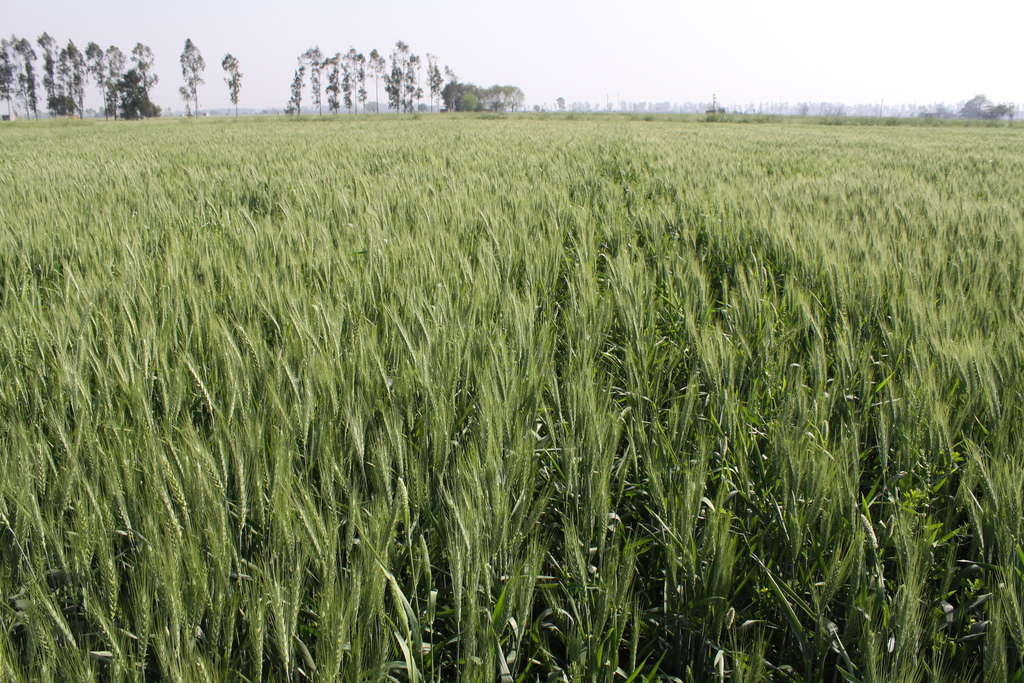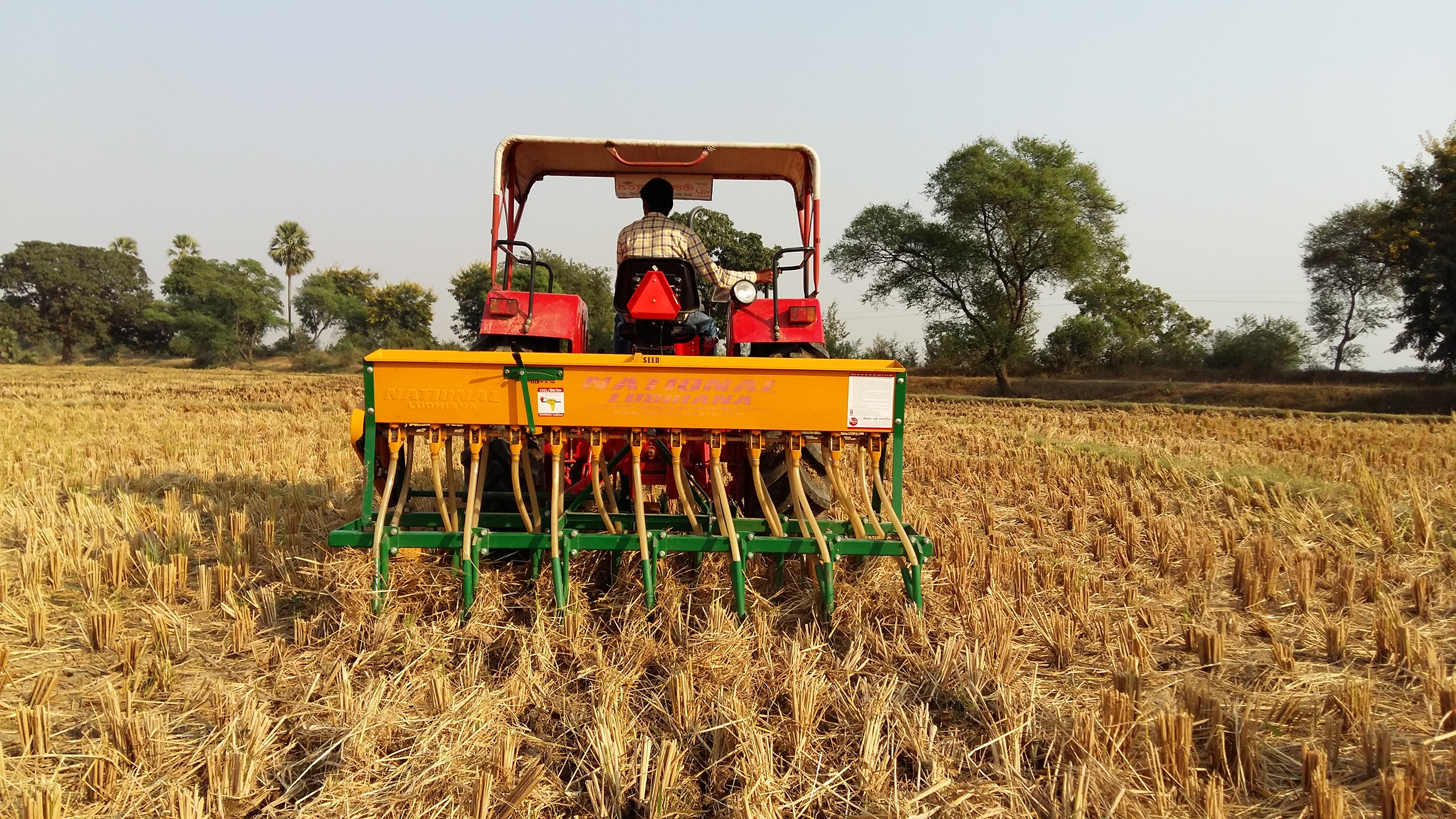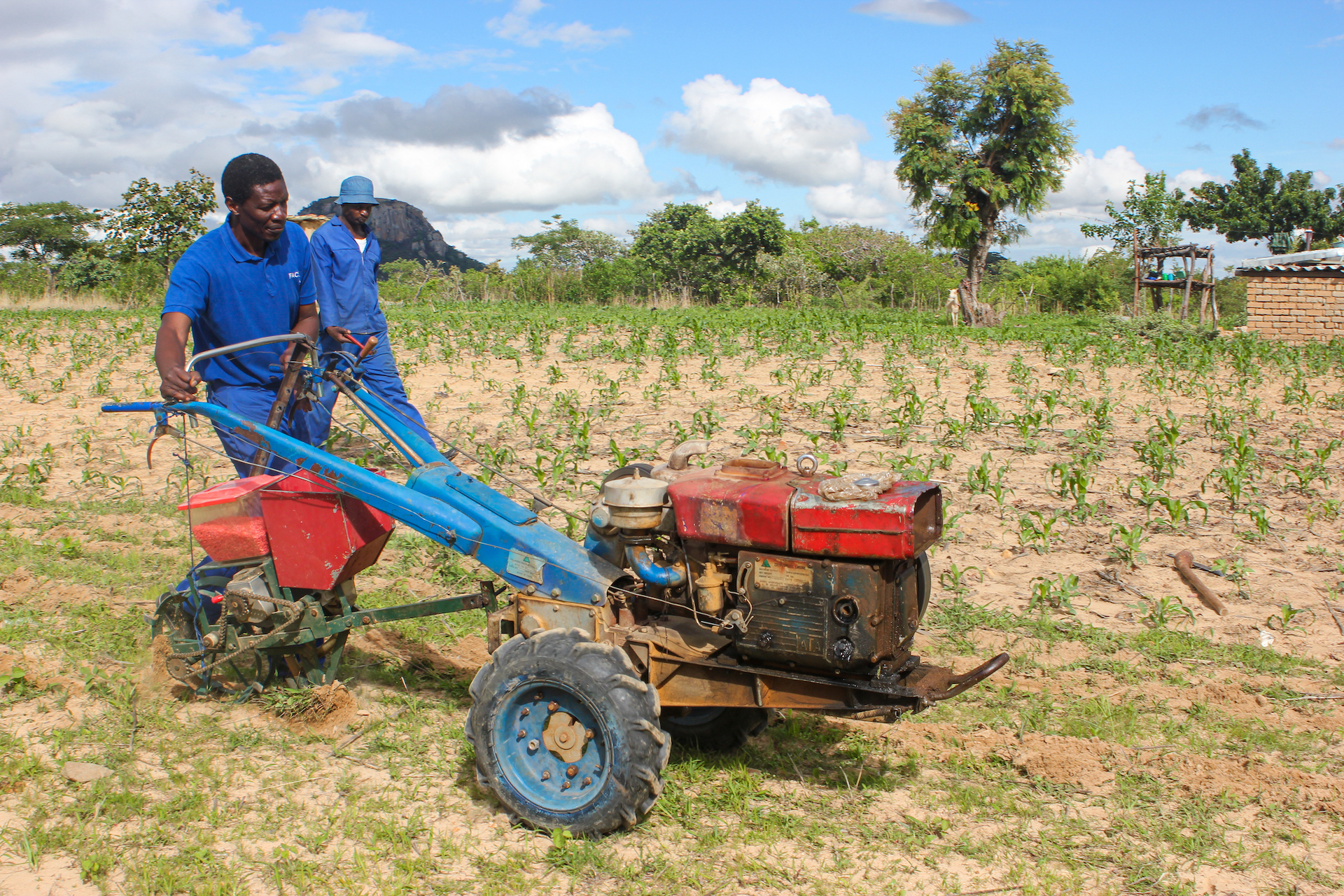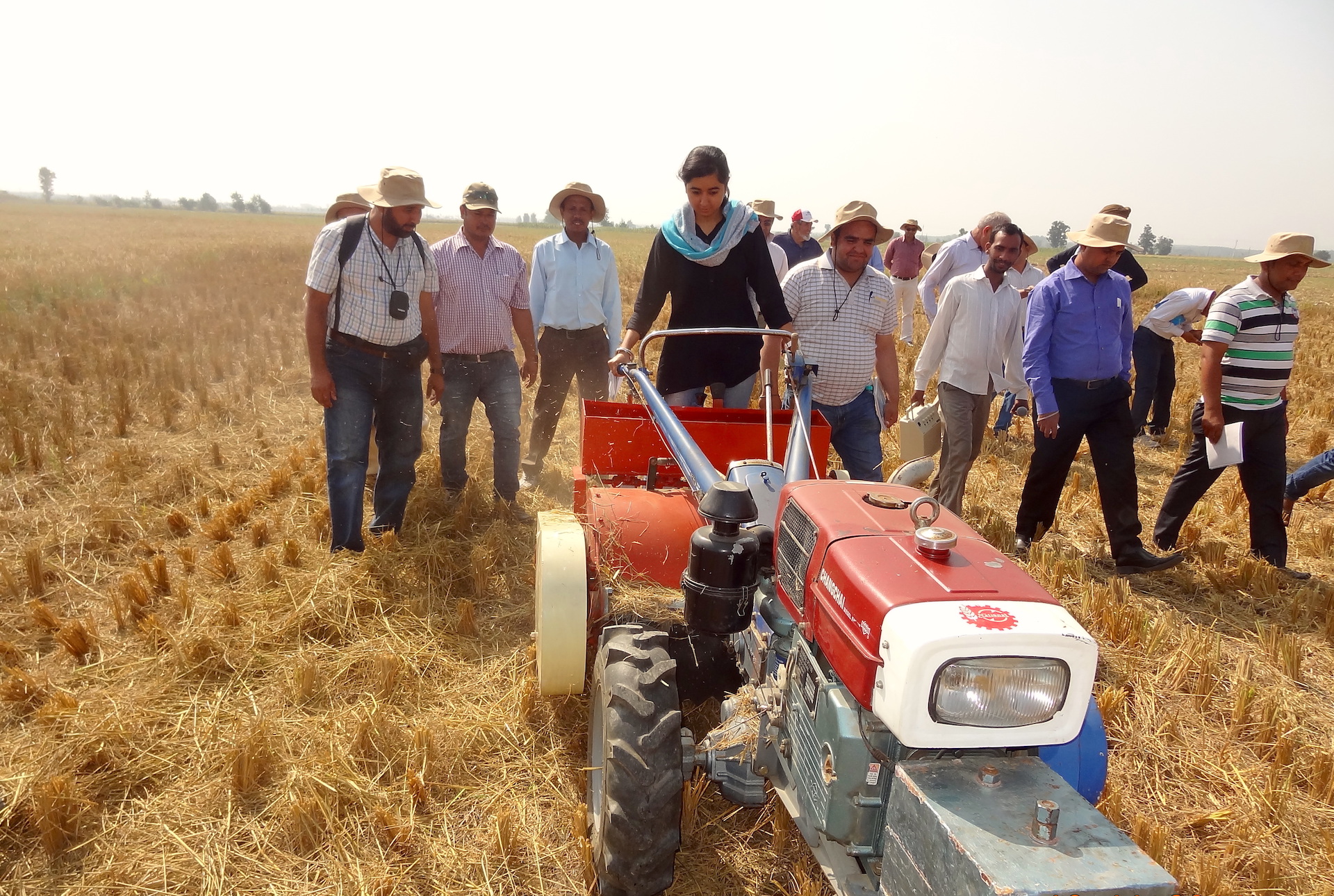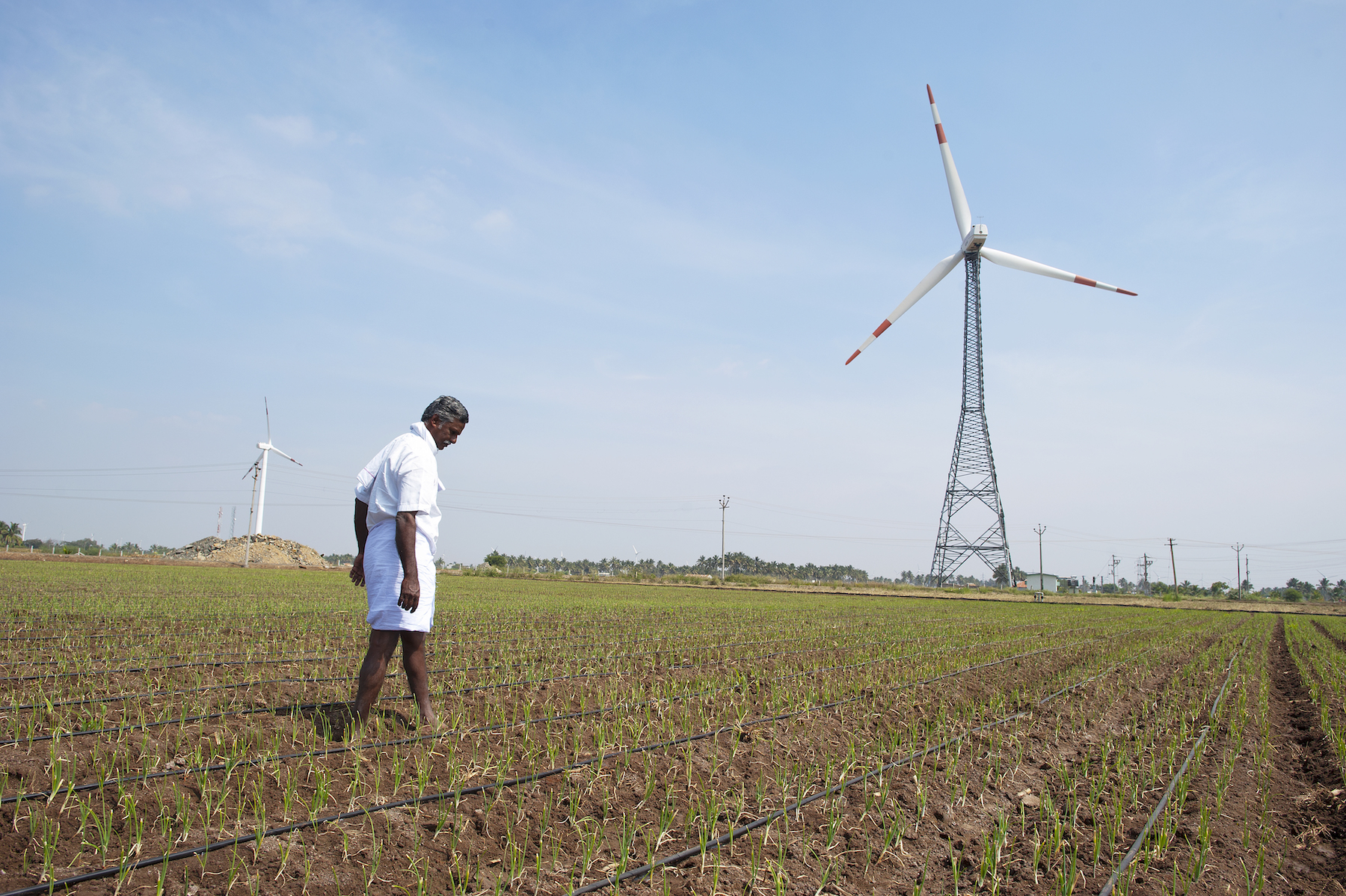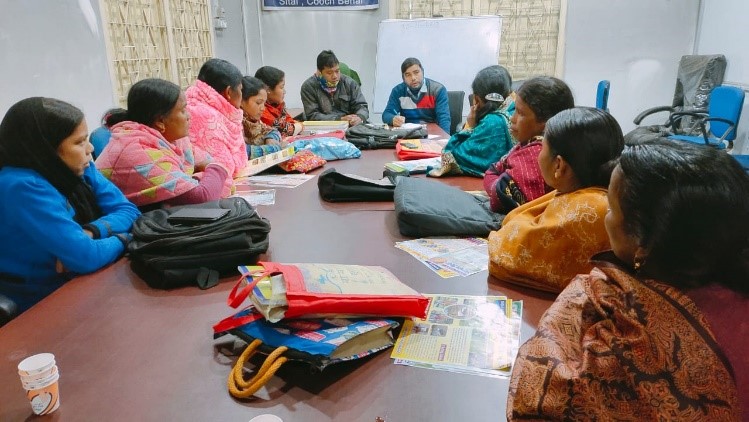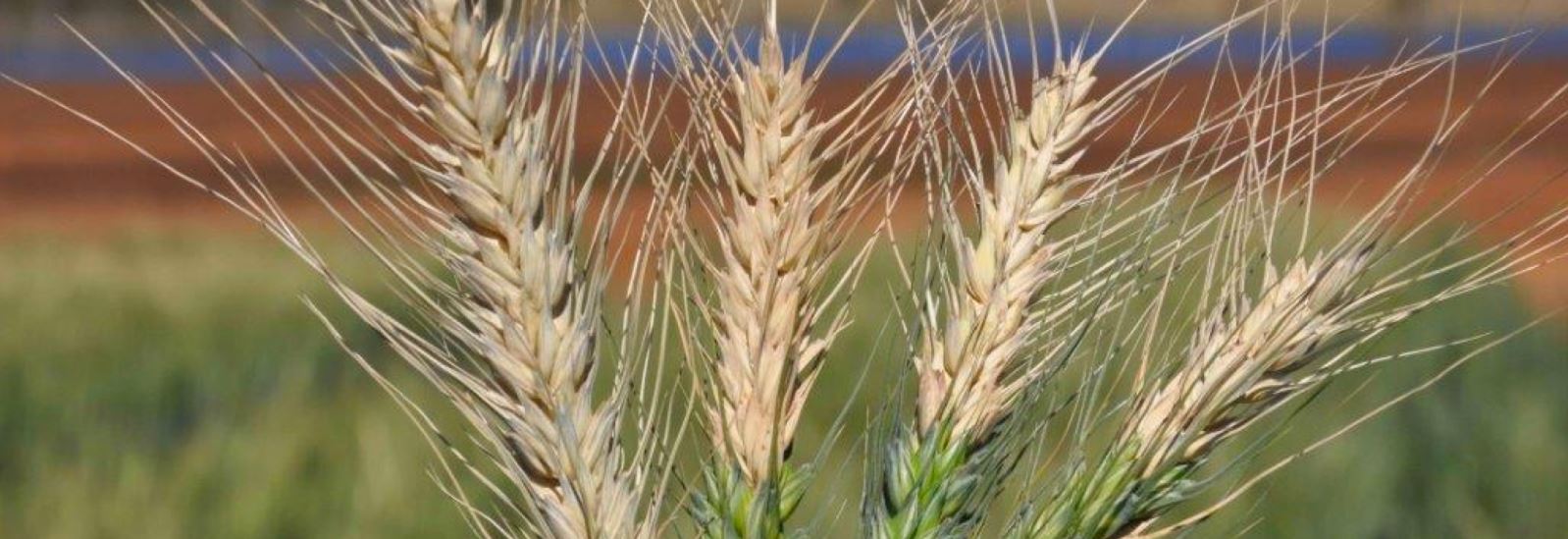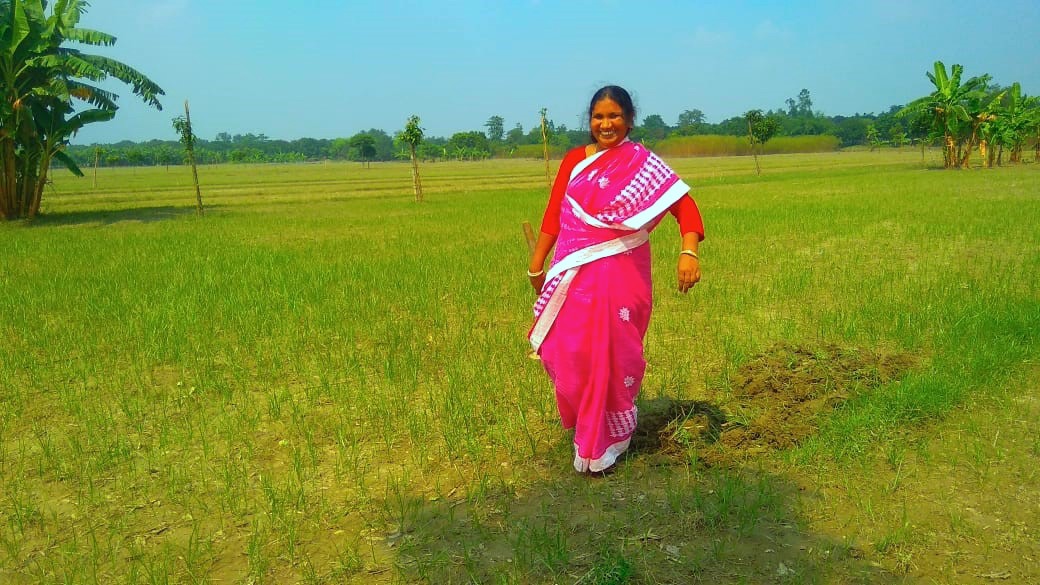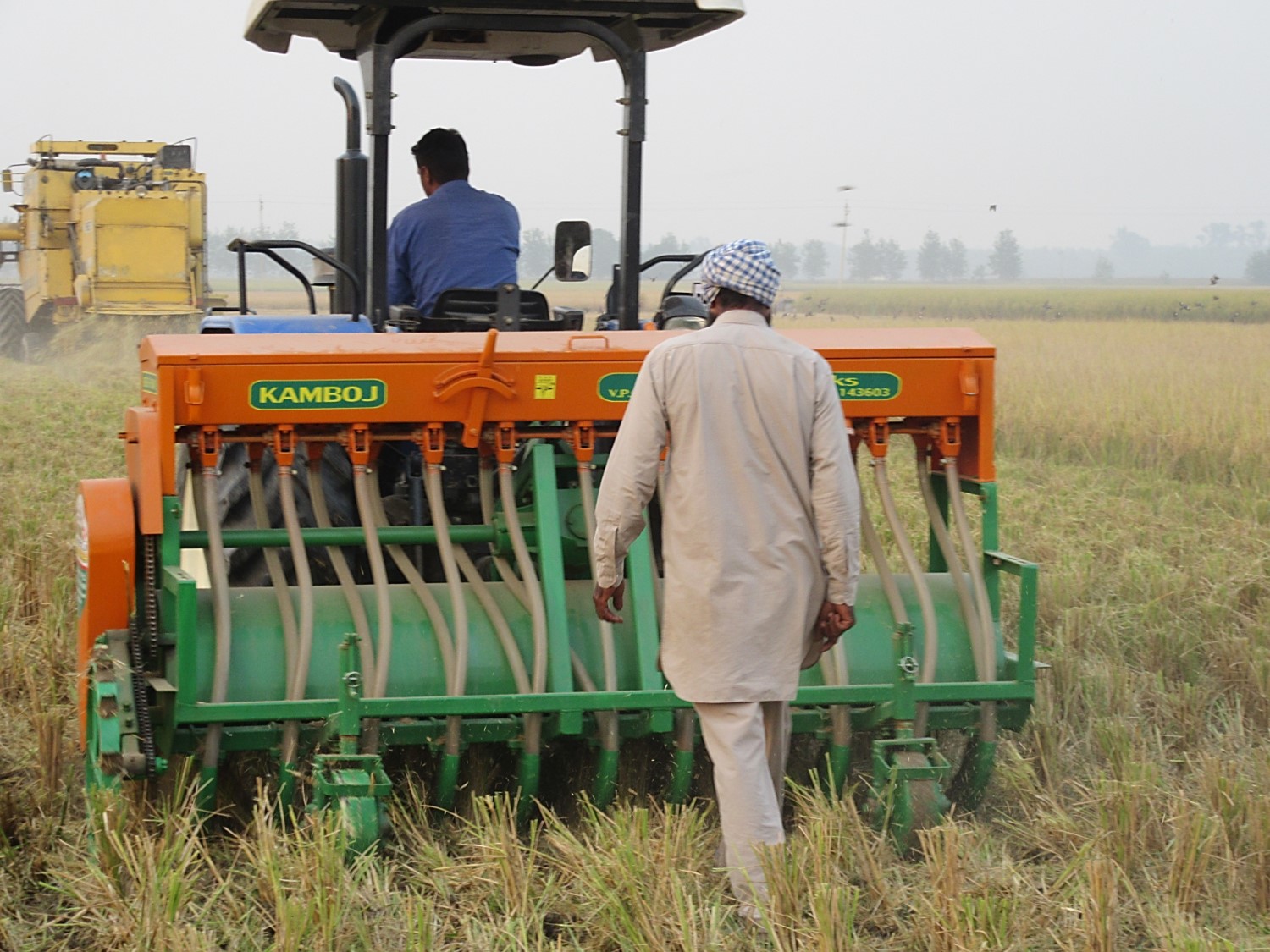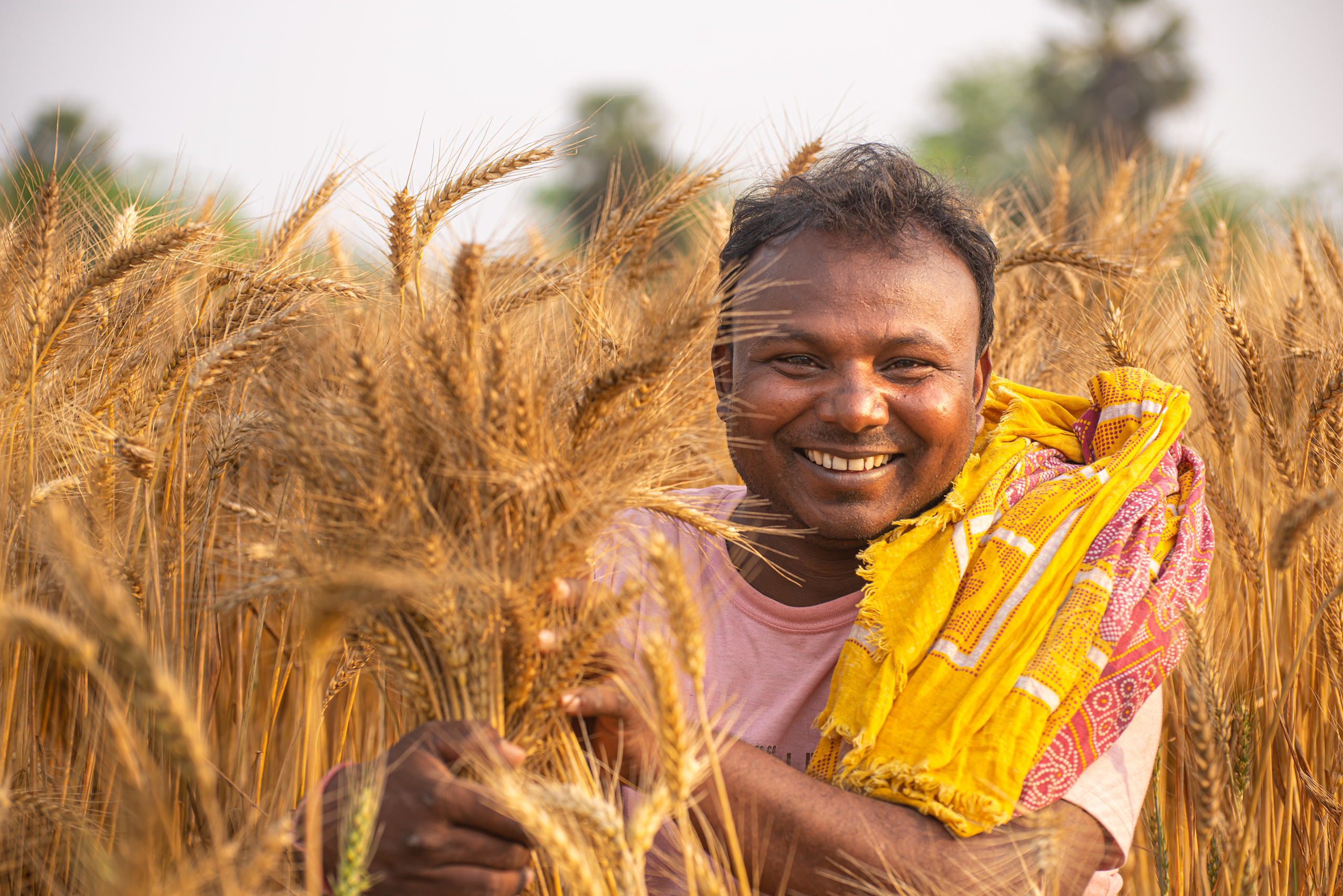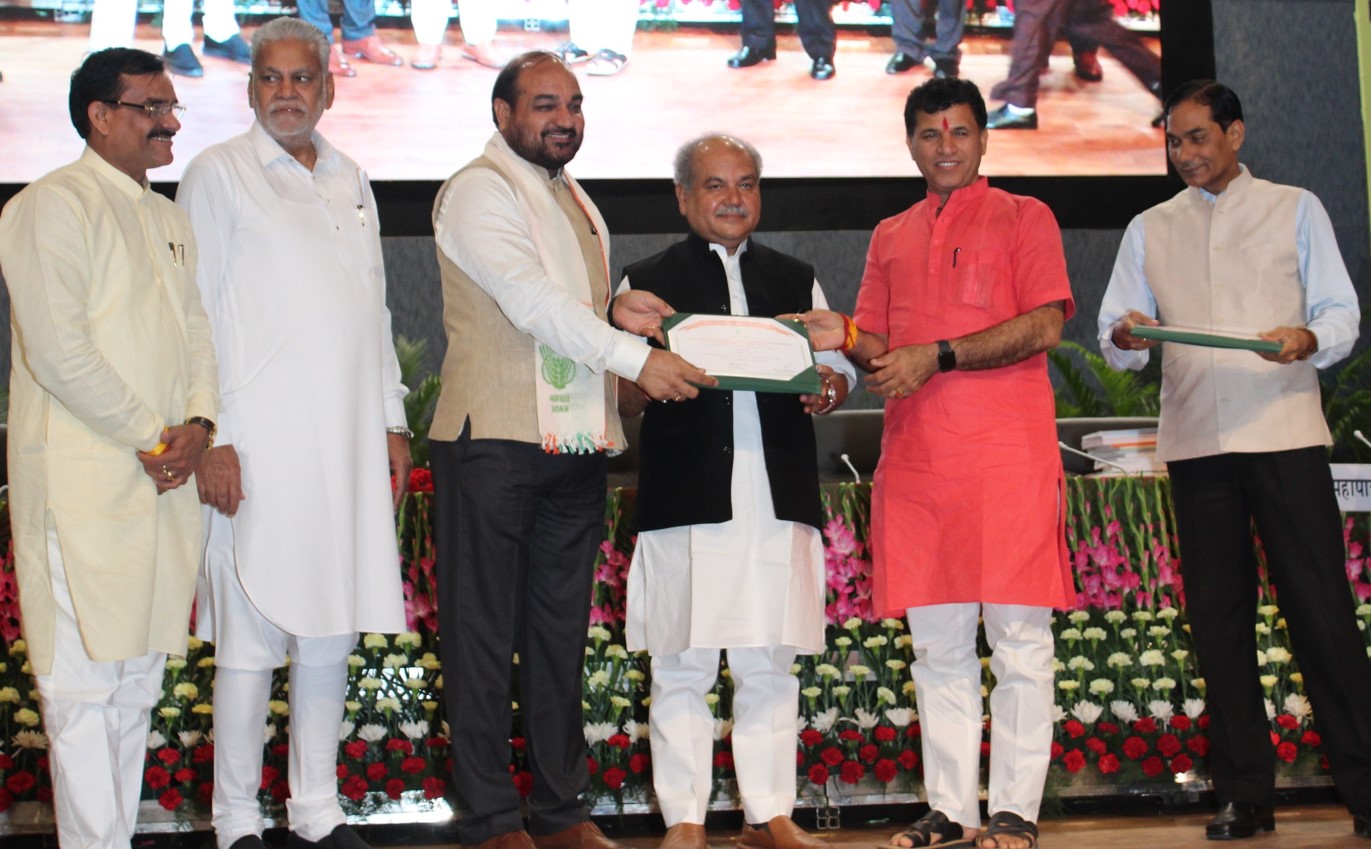India's Ministry of Agriculture and Farmers Welfare
Back to basics: COVID-19 labour crunch brings direct seeding of paddy in focus
 Innovations
Innovations
Source: Down to Earth (15 Jul 2020)
While an estimated 10 percent of India’s 44 million ha of rice is cultivated through direct seeding, the COVID-19 pandemic could lead to an increase in this practice.
Conservation agriculture for sustainable intensification in Eastern India
 Environmental health and biodiversity
Environmental health and biodiversity
A new policy brief provides a roadmap for accelerating the adoption of conservation agriculture in Eastern India.
Could coronavirus drive farmers to adopt sustainable practices in India’s breadbasket?
 Climate adaptation and mitigation
Climate adaptation and mitigation
Interest in farm machinery and crop diversification spike as farmers respond to COVID-19 labor shortages.
Farm mechanization under COVID-19
 Innovations
Innovations
As the current pandemic and restrictions create labor constraints, CIMMYT experts discuss the role scale-appropriate farm machinery can play in addressing them.
Conservation agriculture key to better income, environment protection: Study
 Climate adaptation and mitigation
Climate adaptation and mitigation
Source: The Hindu Business Line (17 Apr 2020)
New study in India reports conservation agriculture increases crop yield and income, reduces the use of natural resources, and offers climate benefits.
Conservation agriculture key in meeting UN Sustainable Development Goals
 Climate adaptation and mitigation
Climate adaptation and mitigation
New analysis shows benefits of conservation agriculture to crop performance, water efficiency and climate action in South Asia.
Systems thinking at work in South Asia’s food production
 Environmental health and biodiversity
Environmental health and biodiversity
New blog published by the Chicago Council on Global Affairs argues that balancing food security, rural livelihoods, water for agriculture and air quality need not be a zero-sum game.
Advancing Nutritious Food Crops: The Role of the Public Sector
 Nutrition, health and food security
Nutrition, health and food security
Source: Outlook India (25 Feb 2020)
Harvest Plus supports cross-sector alliances to advance biofortified crops in India.
New year, new beginnings
 Capacity development
Capacity development
Women in West Bengal form farmer groups and cooperatives drawing on sustainable agricultural practices from CIMMYT’s SRFSI project.
What is wheat blast?
 Nutrition, health and food security
Nutrition, health and food security
Wheat blast is one of the most fearsome and intractable wheat diseases in recent decades. It spreads through infected seeds, crop residues as well as by spores that can travel long distances in the air, posing a major threat to wheat production in tropical areas.
A switch to success
 Gender equality, youth and social inclusion
Gender equality, youth and social inclusion
West Bengal farmer Halima Bibi recognized for success in maize production.
Happy Seeder can reduce air pollution and greenhouse gas emissions while making profits for farmers
 Innovations
Innovations
The average farmer who uses the Happy Seeder can generate up to 20% more profits than those who burn their fields, according to a new study published in Science.
Alternatives to burning can increase Indian farmers’ profits and cut pollution, new study shows
 Climate adaptation and mitigation
Climate adaptation and mitigation
Published in Science, the article provides evidence for national policies that block stubble burning and promote no-till mechanization to manage crop residues.
India honors CIMMYT climate-smart farming expert
 Climate adaptation and mitigation
Climate adaptation and mitigation
M.L. Jat received the Rafi Ahmed Kidwai Award for outstanding and impact-oriented research contributions in natural resource management and agricultural engineering.

